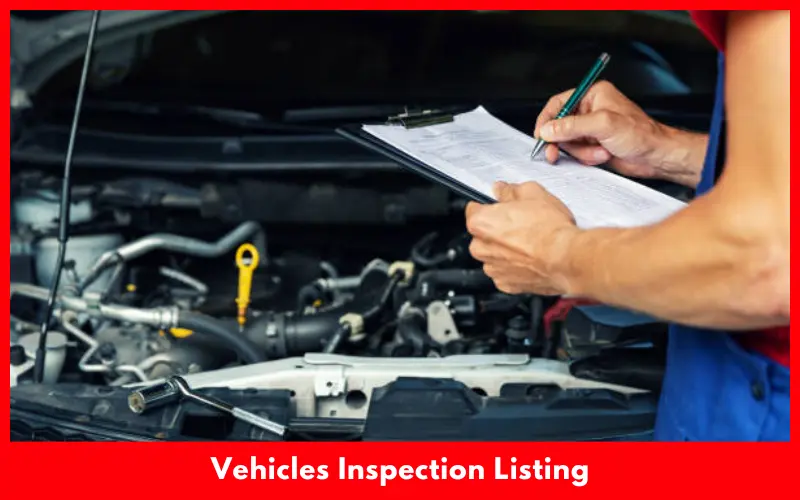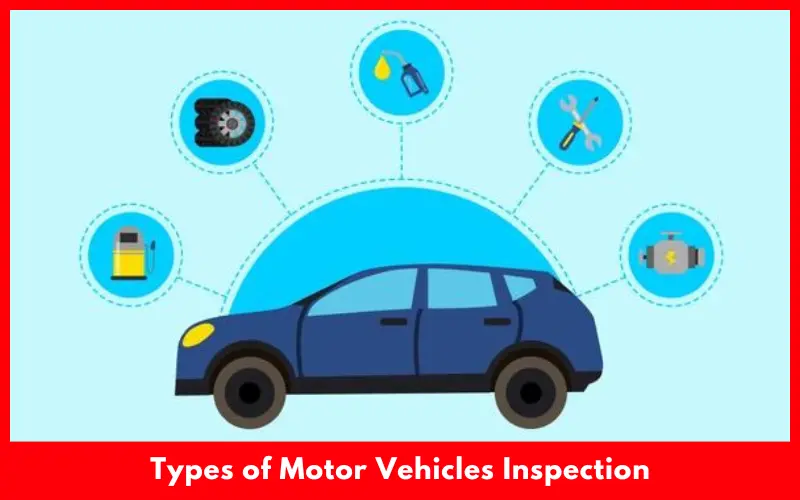Types of motor vehicles inspection is very important in 2023 because we can find more tan 44.000 deaths by traffic accident across all the United State.
When you check in to get a car inspection, a mechanic will look at it from the top to the bottom. Almost all states require that people to check their car every certain period commonly once a year.
The schedule is conducted to guarantee that all cars in the road is taken best care with minimum to avoid any kinds of accident due to a malfunction part. Inspecting your car also do help the drivers to monitor if there is something wrong with their car.
Vehicles inspection is a service that works like an annual physical checkup at a doctor’s office. Just like you have different parts when explaining an annual checkup with the doctor, a car inspection also has more than one count.
What type of motor vehicle does not need to be inspected? There are a lot of vehicles that aren’t supposed to, like passenger vehicles, electric vehicles, classic vehicles, antique vehicles, and off-rode vehicles.
Article Summary
Types of Motor Vehicles That Don’t Need Inspection
Have you ever wondered why some types of motor vehicles are not required to pass inspection? The reasons behind these may surprise you and that’s why we’ve explained the considerations behind the exemptions by vehicle type in this article.
Passenger Cars
If you are a passenger car owner, you might wonder if your vehicle is exempt from inspection or not. Generally speaking, passenger cars are required to be inspected at least once a year in some states to ensure safety and emissions requirements. Under certain circumstances, passenger cars are exempt from any inspection.
A standard exemption is for cars under a certain age (two to four years old, depending on the jurisdiction), which are assumed to still be in good condition and not yet old enough to have to be inspected.
Some states permit antique passenger cars to be exempted if they remain part of a collection and are used fairly rarely. Consult your state’s laws to see if your passenger car may qualify for an exemption from inspection.
Electric Vehicles
Like passenger cars, electric vehicles are subject to inspection requirements. These requirements depend on the state in which you live. Most states exempt electric vehicles from emissions testing since EVs have no tailpipe emissions. Safety inspections are still required in many jurisdictions, which involves checking the function of all electric vehicle components.
States can and do vary in their inspection requirements for electric vehicles, such as whether regular ‘safety’ inspections are required. Periodic inspections for outgassing might be the wave of the future.
If you’re an electric-vehicle owner, check with your local Department of Motor Vehicles or similar agency about storage, inspections and other local eco-rules. This story was adapted from the book Sous Vide: The Modern Technique (2nd edition, 2014) by David Joachim, published by W W Norton.
In some states, driving an electric vehicle is incentivised: you don’t pay certain fees or are allowed to drive in a carpool lane. These incentives can make owning an EV more enticing and can balance out otherwise onerous inspection requirements. Note changes in EV-ownership rules and benefits in your state so that your ownership is easy.
Classic Cars
If your car happens to be an antique, you need to get a sense of what the inspection requirements are for older vehicles in order to continue to show that you are in compliance with state law.
Classic cars are usually defined as vehicles 20-25 years and older. For most people, they represent a small part of their vehicular transportation needs, but are items that they hold dear.
Each state has different standards regarding this, so in many it’s still possible to drive classics without having to get them through an annual state inspection. But that doesn’t mean you’re exempt from any regulations at all.

You might not be at the mercy of yearly randomised roadside inspections like newer cars are, but you do need to maintain that your classic is up to speed with regard to safety and environmental standards.
In order to keep their classic cars exempt from regular inspections, their owners must work to maintain them in good condition. They must carry out regular maintenance, store the cars appropriately, and comply with state laws regarding modifications.
Antique Vehicles
To maintain its exemption from regular inspection and to make yourself compliant with state law, you must, of course, keep your antique vehicle in good working order. An antique car is generally any automobile that is older than 25 years and can be used strictly for exhibition, parades and other public displays. A classic car carries lifelong memories and is a part of history.
Or to retain exemption from inspection, antique vehicles must be ‘used for parts display or parades or exhibitions or occasional Sunday drives. Some states have other requirements for antique vehicles, for example, that they be restricted in the mileage they can drive each year.
Older cars might not need regulatory inspection, but having routine maintenance checks are still advised in order to ensure the safety and longevity of the vehicle.
Off-Road Vehicles
However, it’s useful to know the state law regarding the requirement for use and maintenance that retains those off-road vehicles exempt from inspection. For those who own an ATV, dirt bike or dune buggy, off-road vehicles are exempt from inspections that would normally be required for motor vehicles driven on public roadways. This exemption does not mean that there are no standards for off-road vehicles.
Although these vehicles don’t need regular inspections, since they are typically used in dusty areas or on private land, regular maintenance will keep your vehicle safe to use and make it last longer.
To avoid having an accident or breakdown, check relevant components on a regular basis including brakes system, tires, lights and engine systems. Finally, since different vehicles have different life spans, you can adhere to manufacturer maintenance schedules to keep your trusty steed well-maintained.
While exams aren’t mandatory for off-road cars or any other types of vehicles either, for responsible ownership it’s advisable to perform frequent self-inspections and do the necessary maintenance to allow for safe and fun off-road fun.
Conclusion
Therefore, you are aware which types of motor vehicles cars, trucks, and motorcycles do not need inspection. Depending on the type of your vehicle, follow the above outlined inspection rules in order not to be downhearted. Be informed. And stay safe on the road.

